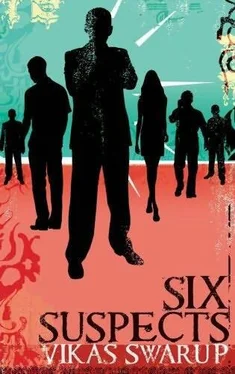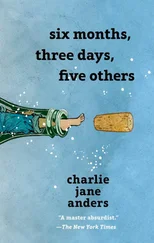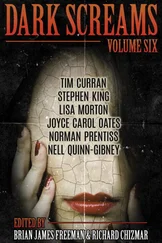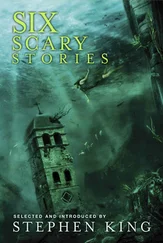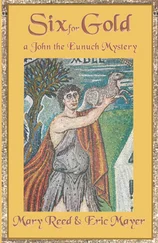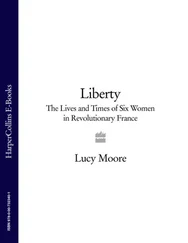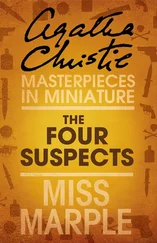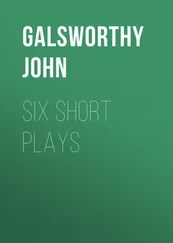'Because it is cursed, isn't it? I should have known. It took away my son, my only son.' Banerjee's voice broke.
'What happened?'
'He was studying in America. Two weeks ago, he died in a freak road accident. I know I am to blame. If only I had not taken your ingetayi, Ananda would have been alive,' Banerjee sobbed.
'Who has it now?'
'I will tell you, but on one condition.'
'What?'
'You have to tell me how to bring a dead person back to life.'
Eketi shook his head. 'Even Nokai cannot do that. No one can challenge the will of Puluga.'
'Please, I beg you. My wife is going insane grieving over our son. I cannot continue like this any more,' Banerjee cried with folded hands.
'It is the curse of the onkobowkwe. You have invited it upon yourself,' Eketi shrugged. 'Now tell me who has the ingetayi.'
'No,' Banerjee said with sudden fierceness. 'If you cannot bring my son back to life, then you are not getting your ingetayi either.' With the speed of a cat, he jumped off the bed, darted out of the door and locked himself inside the bathroom.
'Open up.' Eketi banged at the door, but Banerjee refused to open it. Seething with frustration, the tribal made a thorough search of all the other rooms in the house, damaging a couple of cupboards and breaking some porcelain idols in the process, but did not find the sacred rock. In Banerjee's bedroom, however, he discovered a black leather wallet lying on the bedside table. He grabbed it, walked to the front door, undid the latch and let himself out into the garden.
Two minutes later he was back at the milk booth.
'What happened? I saw a light come on. Is everything all right?' Ashok asked breathlessly.
'Yes.'
'But where is the sacred rock?'
'It is not in the house.'
'Not in the house? That means Banerjee must have sold it. Did he give any clue?'
'No. But I brought you this.' Eketi handed over the leather wallet. Ashok flipped it open. There was very little cash inside, but he whistled as he extracted a business card. 'Calcutta Antique Traders,' it said. 'Prop. Sanjeev Kaul. 18B, Park Street, Kolkata 700016.'
'I bet you Banerjee has sold the ingetayi to this dealer,' Ashok declared.
'So how do we get it from him?'
'I will pay him a visit tomorrow.'
'But how do we go back to the hotel? Will we find a taxi now?'
No sooner had the tribal said this than an auto-rickshaw spluttered to life in a nearby alley. They ran towards it. 'Will you take us to Sudder Street?' Ashok asked the driver, a middle-aged man who reeked of alcohol.
The driver looked at him with large eyes, then looked at Eketi, and ran screaming from his vehicle.
Park Street was a modern, upmarket shopping area, full of designer clothes shops and trendy boutiques. Calcutta Antiques turned out to be a fairly big establishment next to a fancy Continental restaurant. Ashok Rajput entered through an ornate brass door to find extensive repair work being done inside the shop. The ceiling was blackened with soot and there was a strong smell of charring. A tall, fair man with an overly long nose looked at him enquiringly.
'What happened here?' Ashok asked.
'We had a devastating fire three days ago. Half our shop burned down. We lost a lot of antiques, but luckily no one was injured.'
'Are you Mr Sanjeev Kaul?'
'Yes. What can I do for you?'
'My name is Ashok Rajput. I am with the Tribal Welfare Agency in the Andamans,' he declared in an officious tone and produced his laminated ID card. 'I am here in connection with the theft of an ancient stone artefact belonging to the Onge tribe. Did Mr S. K. Banerjee sell a shivling to you?'
'Yes. About ten days ago.'
'Do you realize, Mr Kaul, that you are in violation of the Antiquities and Art Treasures Act 1972?'
'Banerjee did not tell me that it was an antiquity from the Andamans.' Kaul frowned. 'Look, I was not aware I was breaking any law. I thought it was just an old rock.'
'I would like to see it.'
'I am sorry, it is no longer with me. Last Monday I sold it to a client of mine from Chennai.'
'Chennai?'
'Yes.'
'Oh no!' said Ashok and balled his hands into fists. 'I want full details of this person to whom you sold the stone.'
Ten minutes later he emerged from the showroom with a slip of paper bearing yet another address. When he returned to the hotel room, Eketi was still sleeping.
'Get up, you bastard, and start packing,' he said.
'Where are we going now?'
'To Chennai,' Ashok replied. 'To meet one Mr S. P. Rajagopal.'
'And how will we go?'
'By train.'
Howrah station was busier than usual because of the festive season. Eketi gazed at the chaos on the platforms, the rows of passengers sprawled on the cold floor, the shrill vendors selling magazines and sodas, and especially the porters in red, their heads loaded with suitcases and boxes. He observed the sweat pouring down their faces and turned to Ashok. 'Why do you people work so hard?'
'Because we don't get free meals like your tribe,' Ashok said scornfully. 'Do you know how much these tickets to Chennai have cost me? This trip is becoming a nightmare.'
'But Eketi is loving it!'
As the train came hurtling towards the platform, Eketi tightened up in alarm. He cowered behind Ashok for a few moments before gingerly stepping inside the sleeper compartment. Women shrank back as soon as he entered, and clutched their handbags nervously. Children looked at him in fear and receded into their fathers. Eketi smiled. A dazzling, pearl-white smile. The train relaxed.
He grabbed a seat next to the window and didn't budge from it throughout the twenty-seven-hour journey, feeling the sun in his eyes, the wind in his face, watching the changing kaleidoscope of colours as dull brown cornfields gave way to lush green rice fields, marvelling at the vastness of this country where you could travel for hours, passing village after village, and still not reach your destination. As day dimmed to night, the relentless rhythm of the train became a lullaby which gently rocked him to sleep.
Everything was different about Chennai. The weather was hotter than Kolkata and more humid. The men were swarthier and wore moustaches. The women were dressed in colourful saris and had flowers in their hair. No one spoke Hindi.
As soon as they left the brick-red Gothic structure of Chennai Central, the tribal sniffed the air. The north-east monsoon was still active and the aroma of rain hung in the air like a moist perfume. 'Does this place have a sea?'
'Yes. How do you know?' asked Ashok.
'Eketi can smell it.'
They boarded one of the ubiquitous yellow-and-black autorickshaws and Ashok told the driver to take them straight to Rajagopal's residence on Sterling Road in Nungambakkam. As they entered the swirl of traffic outside the station, Eketi looked in wide-eyed wonderment at the imposing buildings and elegant showrooms lining the crowded boulevard. The city was full of hoardings, advertising the latest Tamil blockbusters, but what fascinated him most were the giant plywood images of politicians and film stars dotting the streets, some as tall as two-storey buildings. Chennai was a cut-out city. A giant smiling woman in a sari competed for votes with an old man in dark glasses. Lusty-eyed heroines and moustachioed heroes with exaggerated hair-dos towered over the traffic like colossi.
Sterling Road was a busy thoroughfare, full of commercial establishments, banks and offices, interspersed with large houses. The auto-rickshaw dropped them off directly in front of Rajagopal's The Curse of the Onkobowkwe 297 residence, which was an elegant green-and-yellow-painted villa. Two uniformed guards stood impassively on duty on either side of the high metal gates, which for some reason were open.
Читать дальше
